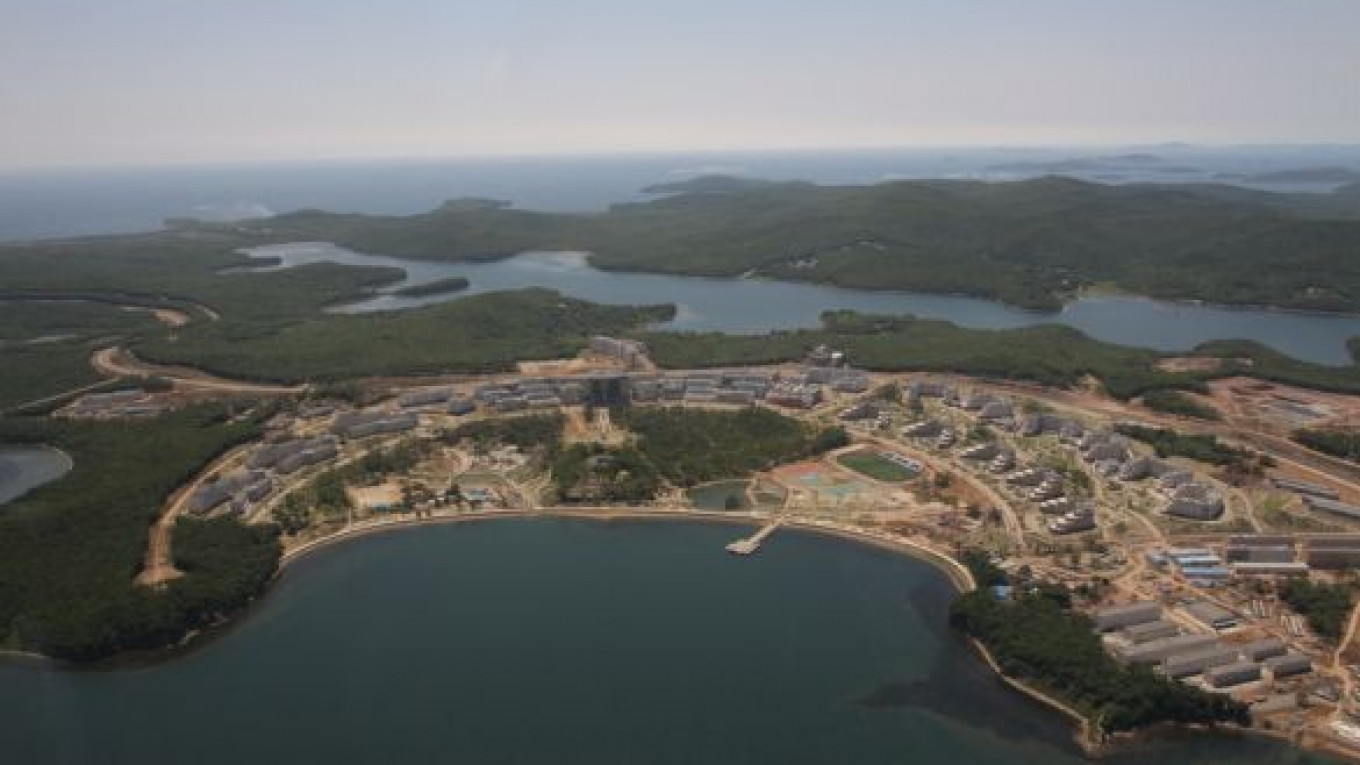Service staff in Vladivostok have expressed disappointment with the uniforms they are expected to wear at the APEC summit to be held on neighboring Russky Island in less than two weeks' time.
Staff told Interfax that the outfit, designed by well-known designer Valentin Yudashkin, was clearly sewn in China with poor-quality, synthetic materials.
"It is obviously that the uniform was sewn in a rush at the last moment. A large portion of the items are sewn with defects," an unnamed staff member told the news agency.
To make up for the faulty tailoring, dozens of local outfitters and seamstresses are resewing and adjusting the uniforms at breakneck speed, the source said.
Cooks, porters, hotel staff and others will need the uniforms in time for Sep. 2, when the APEC summit is set to start. The forum will be attended by high-ranking officials and business leaders from across the Asia-Pacific region, although U.S. President Barack Obama will not attend due to election commitments.
Despite complaints about the quality of the sewing, Yudashkin's maritime-themed color scheme seemed more of a hit. "The main colors are light blue, white and turquoise — an excellent plan," the staff member told Interfax.
Yudashkin is known for redesigning the Russian army's uniform in 2008. His work drew stinging criticism after hundreds of soldiers suffered pneumonia in December 2010, allegedly because Yudashkin's uniforms were too thin.
Roughly 10,000 forum guests and 1,500 service staff are expected at the APEC summit. Of the service staff, a significant percentage are being flown in from countries such as the Philippines, South Korea and New Zealand, Interfax reported.
"The foreigners are confused, they're in shock. They didn't expect this," the source said.
Related articles:
A Message from The Moscow Times:
Dear readers,
We are facing unprecedented challenges. Russia's Prosecutor General's Office has designated The Moscow Times as an "undesirable" organization, criminalizing our work and putting our staff at risk of prosecution. This follows our earlier unjust labeling as a "foreign agent."
These actions are direct attempts to silence independent journalism in Russia. The authorities claim our work "discredits the decisions of the Russian leadership." We see things differently: we strive to provide accurate, unbiased reporting on Russia.
We, the journalists of The Moscow Times, refuse to be silenced. But to continue our work, we need your help.
Your support, no matter how small, makes a world of difference. If you can, please support us monthly starting from just $2. It's quick to set up, and every contribution makes a significant impact.
By supporting The Moscow Times, you're defending open, independent journalism in the face of repression. Thank you for standing with us.
Remind me later.


